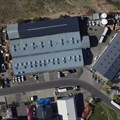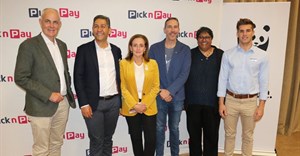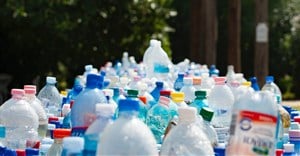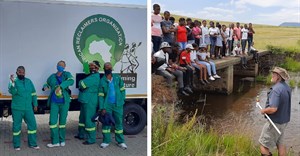Solar thermal: an opportunity for SA's food, beverage industries
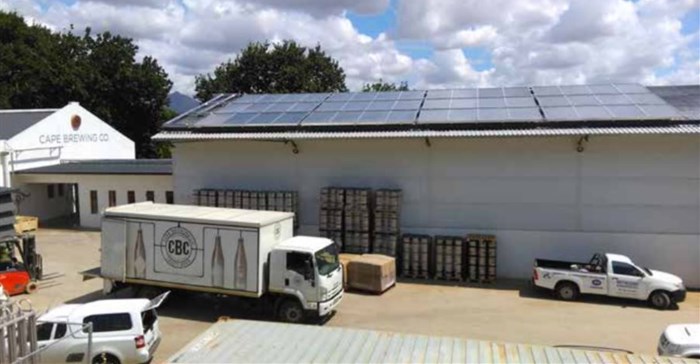
In recent years, food processing has grown more rapidly than many other sectors in the economy, outperforming manufacturing as a whole.
That said, the severe drought in various parts of the country has taken its toll and recovery will take time. Many food and beverage firms are moving into a consolidation phase and the 2017 Baseline Report for the Bureau for Food and Agricultural Policy states that, “Productivity, economies of scale, access to cutting edge technology, to finance, to information and knowledge, and to markets, and the ability to manage and mitigate risk, will determine which firms succeed and those that don’t.”
Investment in energy security
It is within this context that an investment in technologies that assure businesses of energy supply security and mitigate against price increases becomes a particularly attractive proposition.
In 2016, WWF South Africa, GreenCape and Stellenbosch University’s Centre for Renewable and Sustainable Energy Studies hosted a workshop aimed at gaining a better understanding of the potential of solar thermal technology in SA’s agri-processing industry. Participants included representatives from industry, financial institutions, critical government departments and system installers. A compelling case was made for the increased uptake of the technology as holding enormous potential to address energy needs, while also opening local manufacturing opportunities. The full report can be viewed here.
Agri-processing – which includes food, beverages, textiles from natural fibres and wood products – has a wide range of processes requiring low temperature. Solar thermal technologies, such as flat plate or evacuated tube collectors, can provide heat without the need for more expensive technologies like solar photovoltaic. Solar thermal is specifically used to heat liquids such as water and oil.
Solar thermal technologies not yet a major consideration
Major food and beverage conglomerates in South Africa are investing in renewable energy, predominantly in the form of solar photovoltaic panels at head offices, and at certain manufacturing sites. Waste to energy is also a focus, particularly in the sugar industry. Coal is still used extensively to fuel boilers and other heat processes, although there are some moves towards other energy sources or reduced coal consumption. At this stage, solar thermal technologies do not yet appear to be a major consideration.
A recent report produced by WWF South Africa and funded by the International Climate Initiative (IKI) of the Federal Ministry for the Environment of Germany, presents the business case for adoption of solar thermal technology by the food and beverage industry in South Africa.
Most of the energy used in agri-processing is used for heating, largely through non-renewable resources resulting in extensive greenhouse gas emissions, but the WWF report, titled Solar thermal technologies: clean fit for food and beverage industries, identifies solar thermal as an emerging climate-smart opportunity for forward thinking food and beverage industries.
Feasibility of solar thermal in the industry
South Africa’s solar resources provide great potential for broad scale use of solar as a renewable and clean source of energy, as has been demonstrated in a number of utility solar projects. It also offers much potential in the low and medium head replacement in manufacturing. The majority of food and beverage firms use heat in their boilers, for processes such as cleaning, sterilisation and cooking.
Given the realities of input costs, it is more cost efficient to design for solar thermal applications upfront in new buildings and expansions, as opposed to retrofitting. The existing structure of the facility is an important consideration with regards to the suitability of the technology.
The payback of solar thermal systems is between four and ten years if used to replace gas, petrol, diesel, electricity or paraffin, with a likely lifespan of twenty years. Put another way, a firm could reasonably hope to benefit from ten years of free energy per solar thermal installation depending on the replacement fuel.
Socio-economic benefits of investment in the technology
Compellingly, in a nation with significant unemployment, a growing industrial solar thermal industry will support the development of the manufacturing and installation industries, including small and medium businesses and the creation of new jobs.
Greenhouse gas mitigation potential
Under the Paris Agreement, South Africa has made a commitment to greatly reduce its emissions by 2025.
Heat processes in the food and beverage industries emit little under a million tonnes of carbon dioxide equivalent per annum. Coal is used to generate heat for most of these processes.
If solar thermal replaces all heat processes, with the exception of coal, more than 150,000 tonnes of emissions could be reduced. If coal was also displaced, most of the emissions would be eliminated.
The solar thermal industry is still in its infancy in South Africa. It is still relatively underdeveloped and poorly understood by most potential clients. It also involves significant capital costs which should reduce as the industry gains experience.
Carbon budgets
From 2020, companies emitting over a certain level will be allocated carbon budgets. There will be ways to offset unavoidable emissions and penalties for exceeding the emissions budget – both of which will mean extra costs. Future carbon tax and budgets are added incentive for firms considering the shift to renewable energy sources.
Larger firms are under increasing public and government scrutiny. This paired with the new compliance obligations, is driving a focus on sustainability. More and more firms are seeing the market opportunity associated with greener products and sustainable operations.
In conclusion, South Africa’s rising energy costs and high solar potential combine to present solar thermal as a key opportunity to reduce energy costs and carbon footprints while helping to ensure compliance with future carbon budgets.











